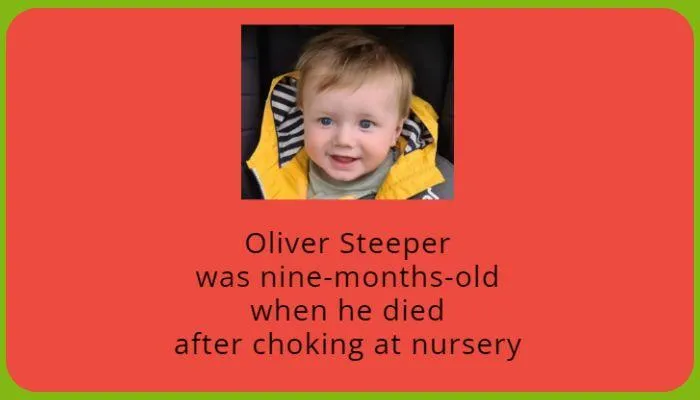Every child's well-being matters.
Best Practice Ideas for Safeguarding Articles

Oliver Steeper
Oliver Steeper tragically died after choking on food at a nursery in Kent.
Despite efforts by staff, delays in resuscitation occurred, as only one staff member was trained in first aid and the ambulance response was slow.
Here’s a summary of key lessons for all early years settings to safeguard your children against the same risks:
More First Aid Training: Ensure multiple staff have up-to-date paediatric first-aid certification to respond quickly to emergencies, especially for infants.
Choking Protocols: Regularly train staff on effective choking response, such as back slaps and CPR techniques.
Age-Appropriate Food: Carefully consider food textures for younger children with limited chewing abilities, and supervise feeding closely.
Oliver’s family welcomed the Department of Education’s new safeguarding measures to come into effect in September 2025. Early years childcare providers must:
- Talk to parents about the stage of weaning their child is at without making assumptions about age
- Obtain information about special dietary requirements, preferences, food allergies and intolerances
- Prepare food in a way to prevent choking
- Ensure children are always within sight and hearing of a member of staff whilst eating
- Make sure there is always a member of staff in the room with a valid paediatric first aid certificate while children are eating
These steps can improve safety and emergency preparedness in early years settings.

Oliver Steeper
Oliver Steeper tragically died after choking on food at a nursery in Kent.
Despite efforts by staff, delays in resuscitation occurred, as only one staff member was trained in first aid and the ambulance response was slow.
Here’s a summary of key lessons for all early years settings to safeguard your children against the same risks:
More First Aid Training: Ensure multiple staff have up-to-date paediatric first-aid certification to respond quickly to emergencies, especially for infants.
Choking Protocols: Regularly train staff on effective choking response, such as back slaps and CPR techniques.
Age-Appropriate Food: Carefully consider food textures for younger children with limited chewing abilities, and supervise feeding closely.
Oliver’s family welcomed the Department of Education’s new safeguarding measures to come into effect in September 2025. Early years childcare providers must:
- Talk to parents about the stage of weaning their child is at without making assumptions about age
- Obtain information about special dietary requirements, preferences, food allergies and intolerances
- Prepare food in a way to prevent choking
- Ensure children are always within sight and hearing of a member of staff whilst eating
- Make sure there is always a member of staff in the room with a valid paediatric first aid certificate while children are eating
These steps can improve safety and emergency preparedness in early years settings.
Quality Early Years Ltd.,
Dickens House,
Guithavon Street,
Witham, Essex,
England, CM8 1BJ
© Quality Early Years Ltd 2024

